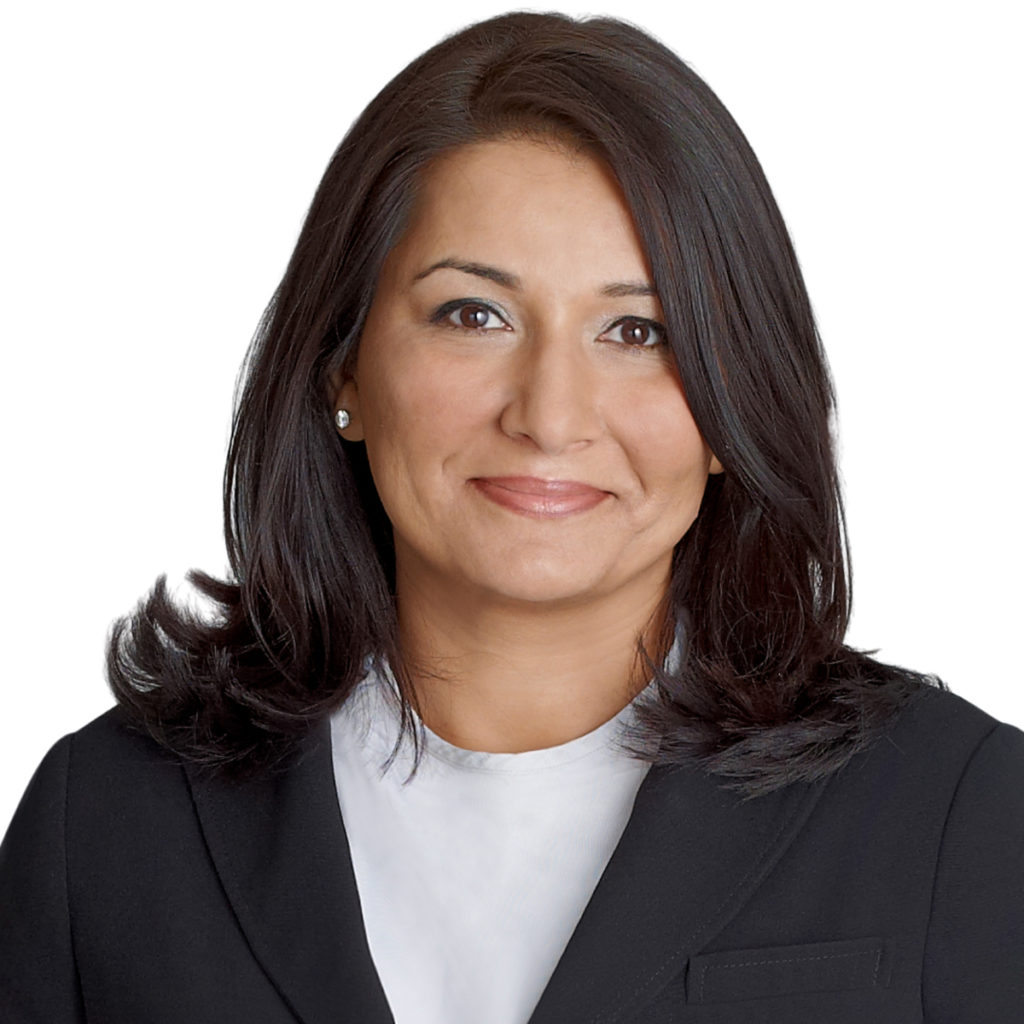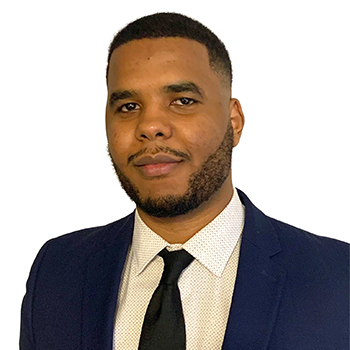
The clinic at Osgoode Hall Law School offers an important resource for investors who fear they have been victims of negligent financial advice, a scam or fraud but can’t afford legal representation. It develops the important skills that students need to succeed in their professional lives after graduation.
By Elaine Smith

Investors who fear they have been scammed by fraudsters or given negligent financial advice by registered advisors but can’t afford expensive legal representation now have somewhere to turn. The Investor Protection Clinic at Osgoode Hall Law School, established in 2017 by Professor Poonam Puri, is the first of its kind. The clinic arose out of a Social Sciences and Humanities Research Council Insight Grant, which provided funding for critical research, including an academic conference on investor protection and recovery that brought together experts from Canada and around the world.
“Investor recovery is a big challenge in Canada, especially if you can’t afford legal counsel,” says Puri, a leading expert in business law, corporate governance, and capital markets standards and regulation. “It’s particularly acute these days because fewer people have defined benefit pension plans, and so they have to save on their own for retirement. Often, they turn to investing to help build their nest eggs. If things go wrong, however, average people face a complex legal system and often cannot afford to hire legal counsel.”
Faced with this community need, and given her position as a professor at York’s esteemed law school, Puri decided to act. She also saw a chance to expand the University’s experiential education offerings to law students. “I’m always looking for ways to enrich the student experience at York – and this was no different,” says Puri.
During her 25 years at York University, Puri has had an incredible impact, is at the leading edge of pedagogy and is focused on advancing the University’s teaching mission. In addition to the clinic, she is also the founder and director of the master’s degree in business law. She constantly promotes lifelong learning among lawyers, regulators and business professionals. Puri is known for her passion for mentorship, groundbreaking research, innovative teaching and sustained impact.
The clinic she heads is staffed by 12 to 15 law students each year who look after dozens of intake analyses a year. The number of supervising law firms involved has grown from six to 13. Through 2021, 70 per cent of clients have had little or no income and many were vulnerable seniors.
“The clinic provides students the opportunity to experience law in action,” Puri says. “Students work with real people who have suffered significant harm. Every week, the students combine what they’re seeing on the ground with critical scholarly readings, and they’re able to reflect on how the system impacts regular people. Students take a critical view of the law, and they then take those perspectives with them even after graduation.”
One of the clinic’s recent successes, for example, involved helping a single mother in her mid-40s whose longtime adviser and friend withdrew funds from her investment accounts without her consent. She sought the clinic’s help in fighting the fraud. The clinic represented her in intense negotiations with the firm and the clinic was successful in getting her money back. Most recently, the clinic has been dealing with an influx of fraud cases in cryptocurrency.

Second-year law student Mo Bakri appreciates this kind of experiential learning.
“This is the first time I’m getting to work directly with clients in the legal realm,” Bakri says. “I am learning to communicate and work sympathetically with people who have experienced hardship and financial loss while assessing what I can do to realistically help them from a legal perspective. These skills will serve me greatly in my legal career.”
Bakri also enjoys dealing with the supervising lawyers and his fellow clinic staff/students.
“I like engaging with the work and then presenting and defending my analysis of the case in front of others,” he says. “I also like the practice aspect: the fast pace and the opportunity to deal with different situations and figure out the answers while working with people with different perspectives.”
Becoming a member of the clinic’s legal team is very competitive; Puri always receives more applications than there are spaces. In selecting students, she is committed to inclusive excellence. Each year’s cohort has students from a range of experiences and backgrounds.
The students work in pairs for intake meetings and the entire class meets weekly to discuss all potential cases to see if the clinic can be of assistance. Along the way, the students learn about the various regulatory agencies and they learn to draft clear and compelling legal documents and negotiate fair settlements for clients.
Sean Campbell, a partner at Tyr LLP, a Toronto law firm, has been working as a supervising lawyer with the clinic for three years and believes the clinic is extremely valuable.
“The clinic provides access to justice,” Campbell says. “It’s so expensive to hire a lawyer to find out your rights. This is a free clinic where you can reach out to very competent, budding young lawyers for advice and aid. I also think it’s important to give students the practice skills that they don’t get enough of in class. They learn to ask the right questions, sort through information and put a legal framework around it to see if there are avenues they can pursue for redress.”
He enjoys being a mentor to “bright, enthusiastic people” and is happy to give back to the profession.
“They teach me things, too,” Campbell says. “It’s not always a one-way street.”
Campbell lauds Puri for her initiative in creating the Investor Protection Clinic, and both of them would like to see more law schools follow suit.
“It’s remarkable that a clinic like this didn’t exist in Canada before; it allows clients to sort out their options without spending a lot of money,” says Campbell.
It’s a need that cried out to be filled, and York University’s diverse and talented law students have stepped in. Puri is immensely proud of the clinic’s students and humbled by the support that the clinic has received in the broader community.
